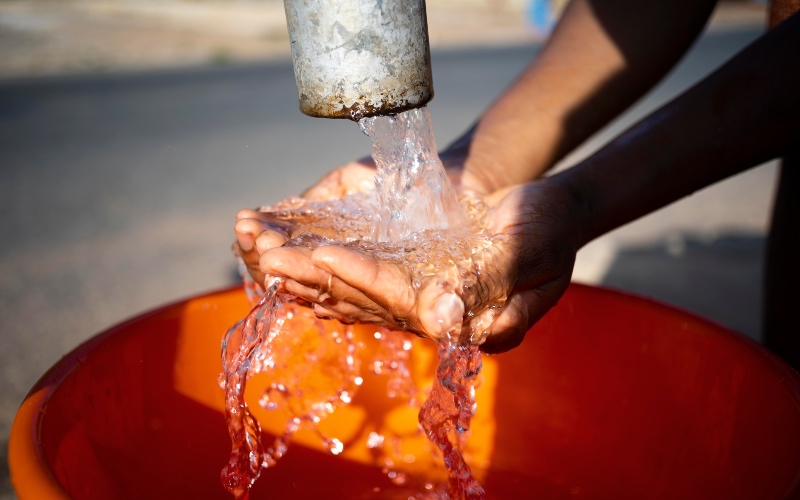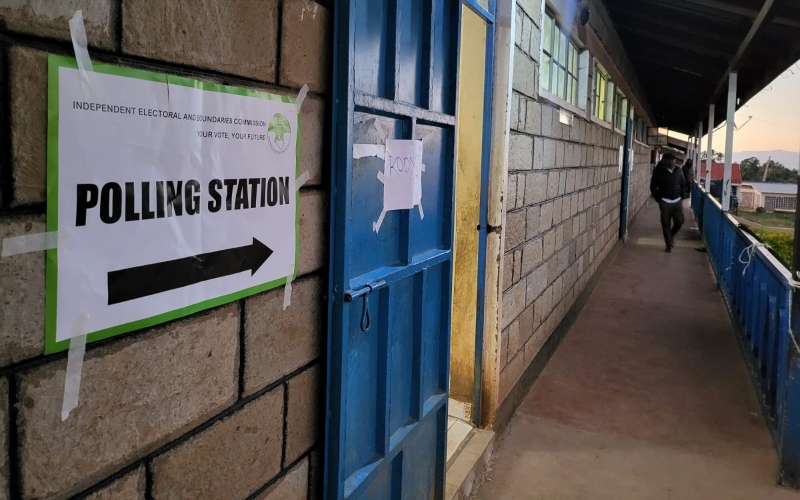Droughts wipe out up to 900,000 jobs annually in Africa - report

Declining freshwater reserves are not only reshaping ecosystems but also undermining employment, particularly in countries heavily reliant on agriculture.
The world is facing an escalating crisis as droughts tighten their grip on economies, putting millions of jobs and livelihoods at risk, according to a new report by the World Bank.
The Global Water Monitoring Report reveals that declining freshwater reserves are not only reshaping ecosystems but also undermining employment, particularly in countries heavily reliant on agriculture.
More To Read
- Africa’s agricultural exports are losing ground: Four key interventions that could lift sector again
- World Bank sounds alarm as Kenya’s labour market weakens, wages fall and informal jobs surge
- World Bank upgrades Kenya’s growth outlook to 4.9 per cent, warns of elevated risks
- Residents to receive Sh500 million compensation for Isiolo-Garbatulla-Modogashe road project
- Africa’s share of global extreme poverty rose by 30 per cent in 10 years - World Bank
- What’s at stake in the COP30 negotiations?
Globally, freshwater loss is estimated at 324 billion cubic meters per year, enough to meet the annual water needs of about 280 million people.
The findings paint a stark picture of how water scarcity is fast becoming an economic issue, threatening to undo years of development gains.
According to the report, the drying trend has accelerated over the past two decades.
Keen on its impact on the job prospects, the lender explains that water availability affects labour market outcomes through both supply- and demand-side channels.
On the supply side, water scarcity affects labour productivity by harming nutrition and health and long-term human capital development.
During water shortages, immediate productivity losses can occur if people fall ill or spend productive hours fetching water or caring for those who are sick.
Illness can result from reduced access to clean water, increasing the risk of waterborne diseases, and from malnutrition caused by droughts.
On the demand side, water shortages negatively affect productivity in water-dependent sectors such as agriculture, energy, manufacturing, tourism and transportation.
This decline in productivity lowers job demand and negatively affects income.
The report reveals that about 78 per cent of jobs in the global workforce have some level of water dependence, and 42 per cent of jobs are significantly water dependent.
Notably, it notes that water’s role in sustaining jobs and livelihoods is more pronounced in developing countries, where a large share of the population depends on agriculture.
“About 80 per cent of the world’s poor live in rural areas and rely heavily on farming, which requires reliable access to water for crop cultivation,” the report reads.
Globally, 1.23 billion people are directly employed in agriculture.
This dependence is particularly striking in regions such as South Asia and Sub-Saharan Africa, where more than 50 per cent of the workforce relies on agriculture.
“In these areas, dry shocks can swiftly erode job opportunities, particularly in rural farming communities, leaving livelihoods at risk,” the report adds.
Specifically in Sub-Saharan Africa, it's estimated that drought shocks reduce the overall employment rate by 2.5 percentage points, and by up to 7.5 percentage points in rural farming areas.
“Given the frequency of dry shocks, this effect translates to approximately 600,000 to 900,000 individuals in Sub-Saharan Africa being jobless each year as a result of exposure to dry shocks between 2005 and 2018.”
These numbers represent a loss of seven to nine per cent of the annual jobs created in the region.
Women, older individuals, landless farmers and low-skilled workers are those most negatively affected.
The lender cautions that without intervention, these pressures could push entire communities toward a tipping point where recovery becomes increasingly difficult.
It, therefore, calls on countries to advance comprehensive water reforms that address water demand, supply and allocation.
These reforms include strengthening institutions to enable robust monitoring, enforcement and cross-sector coordination.
Governments are also urged to adopt smarter pricing systems that reflect the scarcity and true value of water, ensuring that usage is efficient and equitable.
Equally important is the adoption of water accounting to better understand national water endowments and risks.
The report also highlights the need for innovative data and technology systems that can track water availability and use in real time, alongside trade policies aligned with water sustainability to safeguard long-term resource security.
Top Stories Today














































